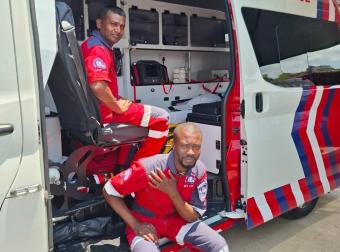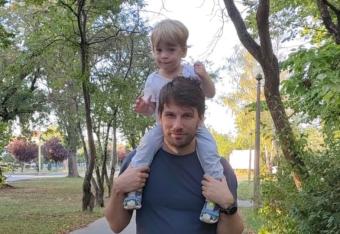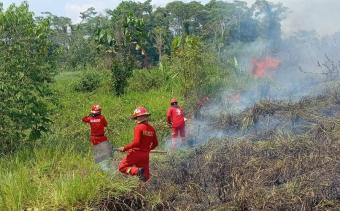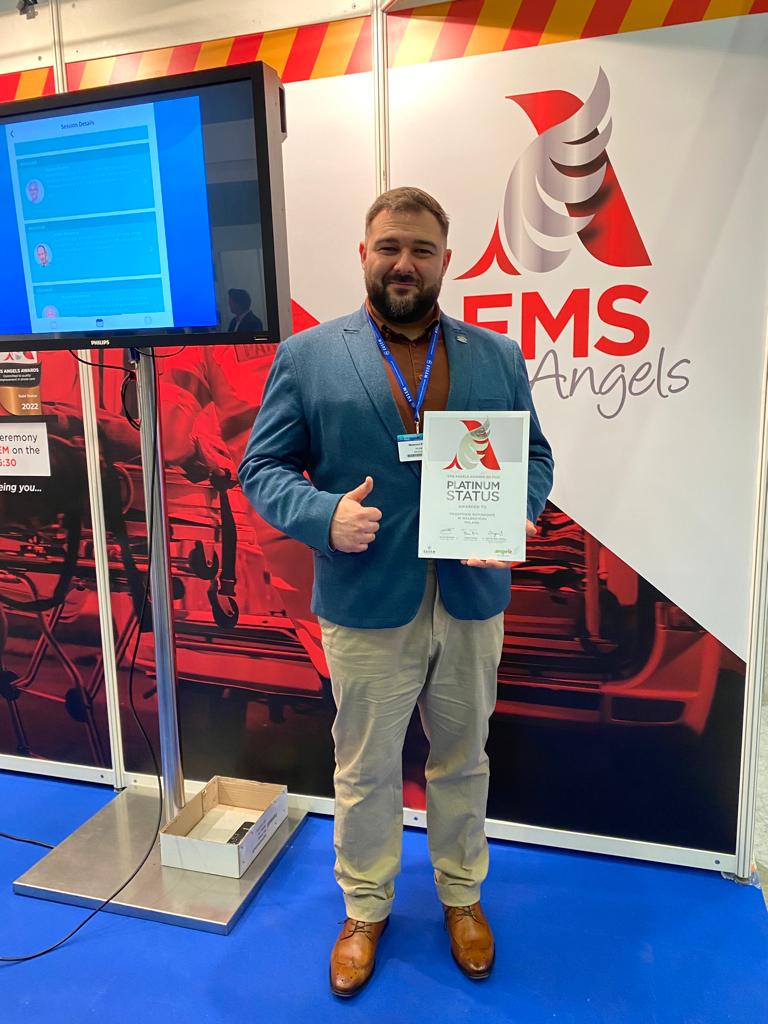
I graduated from the Jan Kochanowski University in Kielce majoring in emergency medical services. I have been working in the ambulance service in Wałbrzych for eight years.
Working under high stress and mental strain motivates me. Making quick decisions under time pressure is another factor that drew me towards this work.
So far, the most important thing for me has been gaining knowledge and experience, learning about differential diagnosis, understanding the pathophysiological mechanisms of various diseases. But of course I always want it to be bigger. I enjoy having the opportunity to share my knowledge and experience with older and younger colleagues in internal training, and in future as an ASLS instructor in Poland.
Contrary to popular belief, the majority of medical rescue trips in Poland do not involve cardiac arrests, traffic accidents, heart attacks or even strokes. Most of the time we deal with emergencies arising from multimorbidity in geriatric patients. This requires deepening one’s knowledge of various branches of medicine, from gynaecology and obstetrics to internal medicine, surgery and psychiatry.
The fact that you never know what to expect at the scene of the incident is another reason why I work in the ambulance service. You never know what awaits you and each situation has to be managed, from cardiac arrest in a child to mental disorders in an aggressive patient. This makes this work exceptional and I wouldn’t trade it for anything.
I became interested in the topic of stroke mainly after joining the Angels project. Previously I succumbed to the opinion, prevalent among paramedics in Poland, that stroke was a disease over which we as paramedics had no agency. However, that turned out not to be the case. That in fact we are able to determine the approximate location of a stroke on the basis of the symptoms, just as in cardiology we can suspect the location of an infarction. That our actions as a rescue team in prehospital care should be as efficient as during a heart attack, that the stroke treatment pathway should start in the prehospital phase, omitting activities that delay the diagnosis and treatment of stroke.
I now realise how important it is to understand what a penumbra is, and how to prevent the acceleration of necrotic changes in brain tissue.
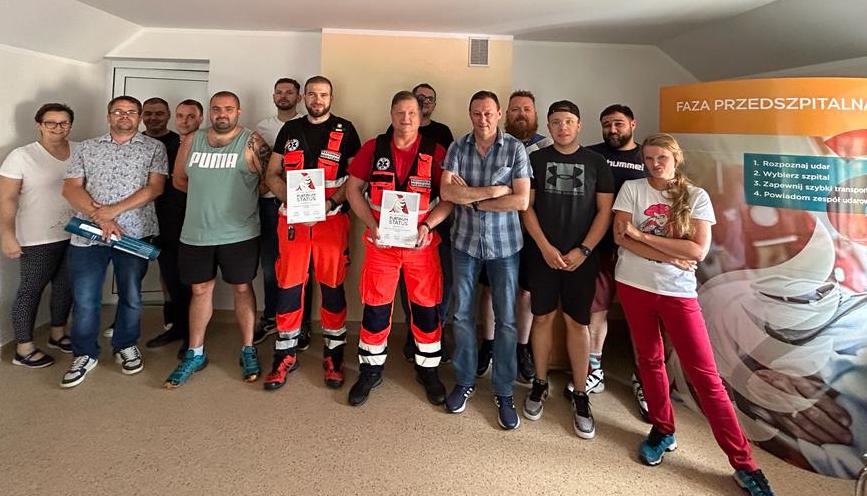
I am proud of the joint solutions that we have been able to introduce in cooperation with the neurology department of the hospital in Wałbrzych. I am proud of my colleagues (paramedics and nurses) who with their hard work were able to meet the standards of excellence and who are motivated to continue providing the highest level of services. Without their commitment this success would not have been possible.
Since completing the ASLS course, I have tried to share the knowledge I gained there with as many people as possible. People find it useful in that it systematises their approach to the physical examination of the patient and allows them to avoid missing the diagnosis of a cerebellar stroke presenting, for example, as ataxia.
One extremely important issue is that in Poland both paramedics and nurses in emergency medical teams have among the most extensive powers in Europe. A paramedic for example has the option of administering 47 drugs in prehospital patient management. As a result, the content of the ASLS course has had to be modified, and enriched with diagnostic and pharmacotherapy capabilities in accordance with the authorisations currently in effect in Poland.
What I would like to improve next is the cooperation between the emergency medical teams and the hospital emergency department. An upcoming simulation with Angels will certainly provide answers about changes to be made to improve times and reduce organisational barriers.
I also hope that in the near future, our emergency medical teams will be able go directly to the CT or MRI laboratory, which will significantly reduce the time to treatment. If that becomes possible from an organisational point of view, as an ambulance team we are ready to do our part, including collecting bloods for INR testing if given the appropriate tools.
I would also like to introduce cyclical training with the use of advanced ALS dummies in order to improve the qualifications of the ambulance staff in Wałbrzych.
I will be conducting ASLS training in cooperation with the Diakonia WANG resuscitation courses, which will give me the opportunity to train rescue and nursing staff from all over Poland. This is something I am extremely proud and happy about.
I want to thank the director of the ambulance service in Wałbrzych, Mr. Ryszard Kułak, for his commitment and cooperation, all my colleagues from the ambulance service in Wałbrzych for their hard work, and the Angels organisation and in particular Katarzyna Putyło for the help she offers.
I am counting on more, much more. Together we are able to do everything.

